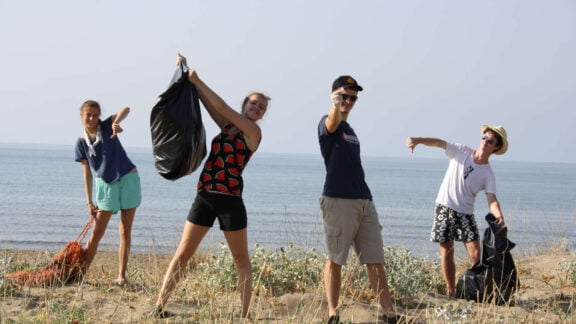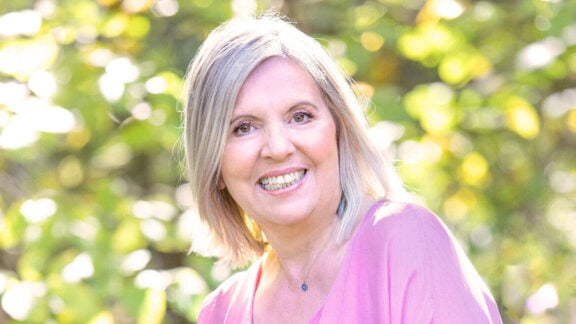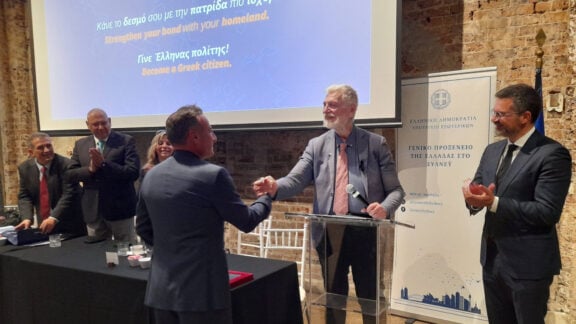Research in Australian schools provided the opportunity to reflect on teaching in Greek schools and promotes Self-regulated learning (SRL).
The research was presented in mid-December by Stella Vosniadou, the award-winning Professor Emeritus of the National and Kapodistrian University of Athens and Professor of Flinders University (Department of Education, Psychology and Social Work), and a team of experts and academics at the Amphitheater “Ioannis Dracopoulos” in Propylaia, University of Athens.
During the presentation, Professor Vosniadou invited primary and secondary school teachers to think deeply when promoting students’ skills by analysing research findings in Australian schools regarding teachers’ strategies and perceptions.
These studies were part of a collaboration of Australian teachers and universities. The Hellenic Society of Cognitive Science and the Hellenic Psychological Society’s Cognitive Psychology Section held the event.
Can you tell us about your collaboration with Australian universities and the “Teaching How to Learn” initiative funded by the Australian Research Council (ARC)?
Australia has many good universities, one of which is Flinders University, where I worked after I retired from the University of Athens. One of the projects implemented was called Teaching How to Learn, funded by the ARC Discovery Program. The project allowed us to form a large team of experts and researchers and use various methodologies to explore South Australian and Victorian teachers’ knowledge, beliefs and practices around learning and teaching. The University of Melbourne also participated in this research project.

Your research in Australia and Greece concerns Self-regulated learning (SRL). Why should teachers need to be informed about SRL?
Self-regulated learning (SLR) refers to students’ skills and ability to control their learning and to be aware of how to learn. Students who regulate their learning know how to organise their home environment to study effectively; they know how to manage their notes and books, create quiet spaces for homework and study, and use time constructively.
They also have the knowledge and strategies to plan, supervise and evaluate their learning. They know when they need help understanding something and how to correct their mistakes.
They know when they need help. They have confidence in their abilities and perseverance to overcome their failures to achieve goals. Finally, self-regulated students know their emotions; they can control their anxiety effectively during exams and take pride when completing their goals.
These skills are necessary for endurance in today’s Greek and Australian society, as conditions change rapidly and school communities find it increasingly difficult to predict the new labour and social realities. This creates the need to equip students with knowledge that is important for the 21st century and skills that enable them for lifelong learning.
We must teach students how to learn. The need for self-regulated learning was highlighted significantly during the COVID-19 pandemic, and online learning accelerated with schools’ lockdown. During lockdown, it became apparent that students must acquire and possess self-regulated learning skills to learn online effectively.
What are students’ and teachers’ roles in Self-regulated learning (SRL)?
Many students ‘learn how to learn’ spontaneously and in the context of their daily lives. However, many still need to acquire the required SRL skills. Teachers can play an essential role in helping students improve these skills.
What were the research results of Flinders University and of the University of Adelaide related to preservice teachers’ beliefs and strategies as applied during teaching self-regulated learning skills?
Many teachers believe their role is to be knowledge and content carriers, they need to understand how important it is to develop their students’ learning skills concurrently. They think that teaching content is different from teaching Self-Regulated Learning skills. They believe it takes more time to teach SRL skills –time they don’t have.

Teaching how to learn is related to teaching content, and it is also about how we comprehend subjects’ content. Teachers who promote learning skills to students do not just present content to their students. They feel satisfied when they also teach their students how to understand the lesson better and provide them opportunities to practice these ways.
These teachers explain to students how to ask questions to assess whether they have understood the subject’s content and how to write a summary containing the main ideas taught in the lesson.
Students learn the subject’s content better when they acquire skills to control and evaluate their learning. And not only that! They can use these skills to gain new knowledge on their own.
Is it difficult for Australian and Greek teachers to understand that they are not only knowledge and content carriers?
It isn’t easy because teachers in Australia and Greece think that teaching students how to learn differs from teaching students what to learn. They must understand that it is all about how a subject’s content is conducted in a classroom. Only when students acquire the necessary lifelong learning skills can they know the content of their subjects and obtain additional knowledge essential for their endurance in an ever–shifting world.
The change that needs to occur will depend on teachers in Greece and Australia, and it must include various actors in the educational system, such as schools, school districts, national ministries of education, educational organisations, and policymakers.
An educational system that prepares students for this century’s challenges must be based on something other than teachers’ delivering content and students’ memorising facts and dates. It needs to create self-regulated students with flexibility in their thinking and ability to adapt to life’s new circumstances.
Can you refer to the case of the Australian Science and Mathematics School?
The Australian Science and Mathematics School (ΑSMS) is a special-purpose high school established by Flinders University to attract students interested in Science, Mathematics and Technology and equip them with the skills that will benefit them in their studies and lives. One of the main reasons many students drop out of university during their first year is their lack of preparation related to the university’s requirements for independent learning.
The ASMS has developed innovative programs to build students’ awareness around their learning process by asking themselves: What am I good at? What are my weaknesses? How can I improve my performance?
The ASMS has also developed a creative curriculum that allows students to take initiative when feeling self-motivated. Generally, the Australian Science and Mathematics School motivates students to develop learning skills.
Can Greek teachers learn and benefit from the research on Australian school environments?
Yes, the challenges are the same in both countries. The need for lifelong learning does not only exist in Australia. Lifelong Learning and its related skills are essential to progress in the 21st century.
Although the conditions in Australia and Greece may differ, there is no reason why teachers in Greece cannot combine what students should learn with how they should know it.
*Maria Filio Tridimas, a sociologist and educator in an Independent school, holds diverse degrees from Greek and UK universities, including a ΒA in Sociology from the University of Reading, an LLM in Human Rights and Development from the University of Warwick, and multiple MA degrees encompassing European Studies, International Relations, Educational Technology, Human Resources Management, and an MSc in Economics of Education from the National University of Athens, Greece.









